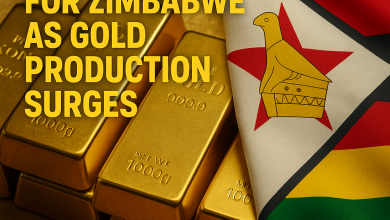
Introduction: A Positive Trend for Zimbabwe’s Dairy Industry
In a significant stride towards self-sufficiency in dairy production, Zimbabwe has witnessed a 14.3% increase in milk production, as confirmed by the country’s latest agricultural statistics. In 2022, Zimbabwe produced 91 million liters of milk, up from 79.6 million liters in 2021. This marks a continued growth trajectory for the nation’s dairy sector, offering hope for both the agricultural community and consumers alike.
Milk Production Growth: A Look at the Numbers
The 2022 production figure of 91 million liters of milk represents a substantial improvement from the previous year’s 79.6 million liters. This increase can be attributed to a combination of factors, including improved farming practices, increased investment in the sector, and favorable weather conditions. In 2020, milk production stood at 76.7 million liters, while in 2019, it had been 79.89 million liters. This steady rise in production over the past few years highlights the resilience and potential of the dairy industry in Zimbabwe.
Factors Contributing to the Increase in Milk Production
Several factors have contributed to this upward trend in milk production. First, improved animal husbandry practices, better feed management, and veterinary services have enhanced the overall productivity of dairy farms. Additionally, more dairy farmers are adopting advanced farming technologies, which have led to higher yields per cow. The government’s continued support through programs aimed at boosting local production also played a crucial role in this development.
Decline in Milk Powder Imports: An Indicator of Self-Sufficiency
In addition to the rise in milk production, Zimbabwe also saw a 17% decline in milk powder imports, from 8.9 million kilograms in 2021 to 7.4 million kilograms in 2022. This decline in imports suggests that the country is making significant strides toward meeting its dairy needs domestically. As local production continues to rise, the dependency on foreign milk powder is expected to further decrease, which could have positive implications for the country’s balance of trade.
The Impact on the Local Economy
The increase in milk production and the decline in milk powder imports are expected to have a positive impact on Zimbabwe’s local economy. The dairy sector is a crucial contributor to rural livelihoods, providing employment to thousands of farmers, milk processors, and others in the value chain. Furthermore, by reducing dependency on imports, Zimbabwe can save valuable foreign currency, which can be redirected to other pressing sectors of the economy.
Conclusion: A Bright Future for Zimbabwe’s Dairy Industry
With a 14.3% increase in milk production and a 17% reduction in milk powder imports, Zimbabwe is moving toward a more sustainable and resilient dairy sector. Continued growth in this industry is crucial for food security, economic stability, and job creation. With the right support and innovation, Zimbabwe’s dairy sector holds great promise for the future.




